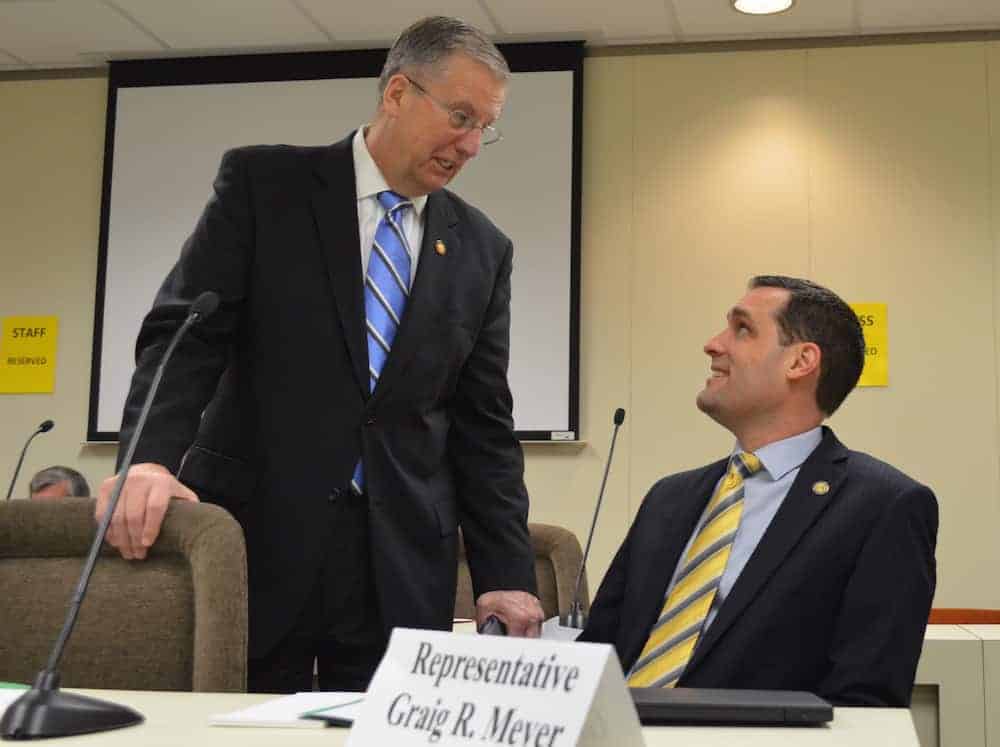

The big headline coming out of this year’s budget negotiations is a large teacher raise.
Looking at the details, the raise is not exactly what’s being sold to the press and trumpeted on the campaign trail.
This year’s raise is calculated based on an increase over last year’s base pay. It does not account for the $750 bonus that every state employee received last year. If you’re calculating your expected pay increase at home, you might want to subtract $750 from what the Republican leadership is telling you to celebrate.
Last year I predicted this in a column called “This Raise is a Setup” wherein I suggested that by giving a $750 bonus rather than a raise, the General Assembly’s Republican leadership was setting the stage for a big election year raise in 2016. They were hiding the fact that a bonus is not a raise, and it meant that this year’s “raise” would look bigger than the actual change in take home pay. I take no joy in saying I told you so.
It’s no surprise that teacher pay is going to be one of this year’s hottest political issues as we head into campaign season. But let’s be honest about what’s included in this raise once you get past the headlines.
The actual amount of teacher raises ranges from 2.1 percent (teachers going into year two) to 13.1 percent (congratulations teachers going into year 16!). Take away the bonus and that average ranges from 0 percent to 11.25 percent. There’s no clear rhyme or reason as to why the raise isn’t the same percentage across the board.
Three groups of teachers are especially left out of this “raise.”
- First year teachers next year will make less than last year’s beginning teachers. There is no bump in pay for teachers with zero years of experience in this year’s raise, and last year’s beginning teachers got that $750 bonus.
- Speaking of last year’s beginning teachers: Their take home pay this year will be the exact same as last year. Their raise is $750, the same as last year’s bonus.
- Our veteran teachers are once again being treated the worst. This year’s raise gives nothing to teachers with thirty-two years of experience or more. Without the bonus, this year they will take a cut in take home pay.
What about other school employees besides teachers? There’s no 4.7 percent raise for them. They are getting the standard state employee raise of 1.5 percent plus a .5 percent bonus. If you’re a school employee who makes less than $37,500, your raise and bonus this year is going to be less than what your take home pay was last year. (There is also 1 percent available for merit bonuses, but no one is sure how those will be distributed.)
Principals did get a new special provision: If their pay has fallen behind what they would be making if they stayed a teacher, they will now get paid on the teacher pay scale! I can’t imagine any business telling their management team “You want a raise? OK, we’re going to put you onto the retail staff pay scale!”
Once you look beyond the “raise,” the new education budget is also full of harmful cuts to our public schools.
The Department of Public Instruction takes another $250,000 in budget cuts. This Department is already frequently described as having been “cut to the bone.” Why do budget writers hate DPI so much?
The budget cuts central office administration funds by $2.5 million. Funding for central offices is now equivalent to what it was in the mid-90’s. Big districts can spend their local funds to cover up some of this, but rural districts are really hurt.
The state’s At-Risk Student Fund also takes a $2.5 Million cut. The program that provides grants for after-school funding is cut by 50 percent. As usual, the budget is balanced on the backs of the poor.
Community Colleges are losing $26 million for adjusted enrollment numbers. Even with enrollment going down, imagine how citizens and companies could benefit if that money was reinvested in job training programs.
The UNC system will have to take another $16 million “flexibility” cut. That’s a total of $757 million in cuts over the last few years. How come “flexibility” really only goes in one direction?
No one is surprised or angry that teachers will receive a big pay raise in an election year. My wife and every other teacher that I know are appreciative of what they’ll receive.
Admittedly, I’m playing my own election year political card here by highlighting some of the budget’s weaknesses.
You get to have a role in this election year as well. In November, you will have to consider whether your state legislators are doing enough for public education. Please vote accordingly.


